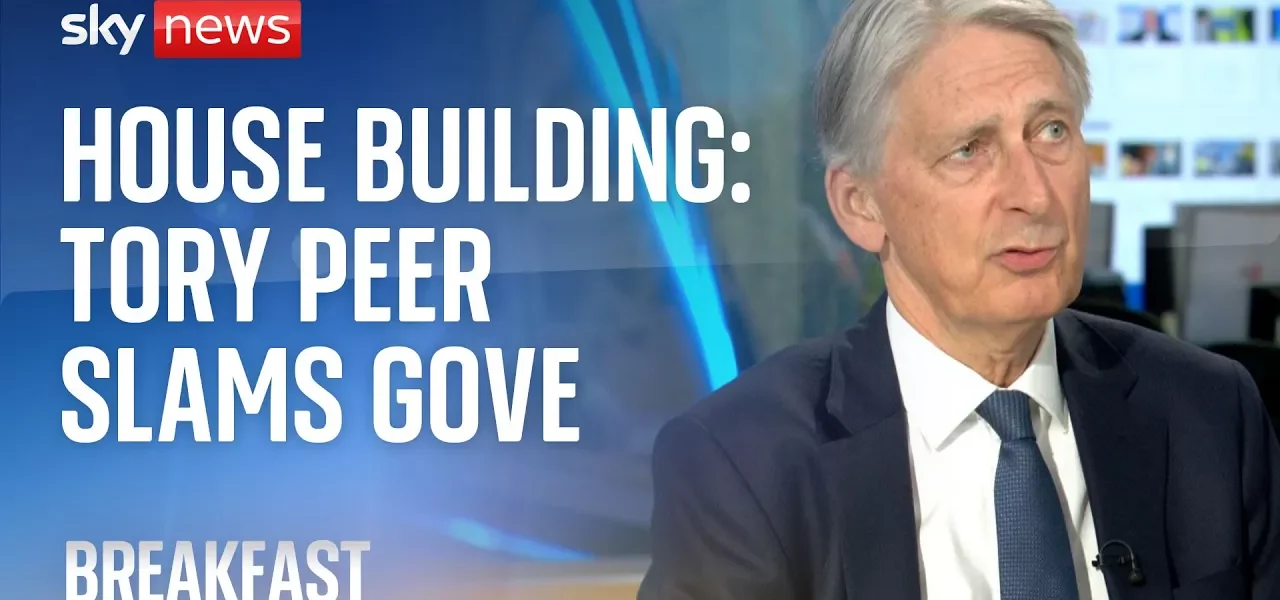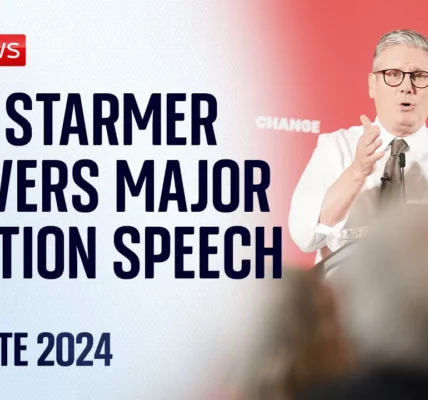Conservative Views on Housing and Economic Strategies with Lord Hammond

This article delves into the conservative perspective on pressing issues such as housing development, immigration policies, and economic strategies in the UK, featuring insights from former Chancellor Lord Hammond. Gain a deeper understanding of the complexities surrounding these topics and their implications for the future.
Introduction
The debate surrounding housing development in the UK has become increasingly contentious, particularly regarding proposals to build on green belt land. In this article, we explore the conservative viewpoint articulated by Lord Hammond, who emphasizes the urgent need for more housing in the UK. This discussion not only addresses housing shortages but also touches on broader economic implications, including labor market dynamics and the upcoming EU renegotiations. Understanding these elements is crucial for grasping the current political landscape and its potential future directions.
The Need for More Housing
Lord Hammond argues that there are compelling reasons to increase housing availability across the UK. This necessity can be broken down into several key areas:
- Social Pressure: The demand for housing has intensified, driven by population growth and urbanization.
- Economic Regeneration: Revitalizing the housing sector is essential for economic growth, as it stimulates construction jobs and related industries.
- Political Challenges: Balancing local opposition to development with national housing needs is a persistent challenge for the government.
Despite the need for more homes, Hammond cautions that merely relaxing planning rules is insufficient. The government must ensure that there are enough builders to meet the demand for housing. He argues that a dual approach focused on both planning reform and labor availability is necessary for success.
Green Belt Controversy
The discussion about building on green belts often provokes strong emotions and opposition from local communities. Hammond acknowledges this tension:
Political Implications
Building on green belts could alienate conservative voters in certain constituencies, putting pressure on the ruling party. However, the need for housing has to be balanced against political considerations:
- Local Resistance: Many constituents oppose development in their neighborhoods, fearing negative impacts on the environment and community character.
- Strategic Decision-Making: The government must navigate these local sentiments while addressing national housing shortages.
Hammond emphasizes the importance of breaking the current logjam in housing development, suggesting that previous government leaders have not adequately confronted this issue.
Immigration and Economic Needs
Another pressing topic in Hammond’s discussion is the relationship between immigration and the UK economy. He suggests a clear distinction between long-term and short-term immigration needs:
Labor Market Dynamics
As the UK population ages, the economic need for labor will continue to grow. Lord Hammond suggests that:
- Short-Term Workers: The economy must allow for short-term migration to fill labor shortages without granting permanent residency.
- Long-Term Settlements: Long-term immigration should be managed carefully to ensure social cohesion and sustainable growth.
This separation of immigration types is crucial for addressing workforce demands without overwhelming the social fabric of the country.
Government Financial Strategies
In light of recent elections and changes in leadership, financial strategies are under scrutiny. Hammond discusses the implications of the Labour Party’s recent victories and how it alters the fiscal landscape:
Accountability and Transparency
Hammond reflects on the budgeting process and the importance of transparency. He notes:
- The Chancellor’s responsibility for budget outcomes.
- The potential for new mechanisms to enhance accountability in reporting financial forecasts.
- The challenges posed by fluctuating economic conditions that complicate budget predictions.
He emphasizes the need for careful consideration before implementing policies that could disrupt economic stability.
Conclusion
In conclusion, Lord Hammond’s insights shed light on the complex interplay between housing, immigration, and economic strategies within the UK. The need for more housing is clear, but the methods of achieving this require careful navigation of political, social, and economic landscapes. As the government continues to grapple with these challenges, it is crucial for policymakers to adopt a balanced approach that takes into account the diverse needs of the population.
For further insights on related topics, feel free to explore our articles on Housing Development Strategies and Economic Growth Policies. Stay informed and engaged with the evolving political landscape in the UK.
“`




